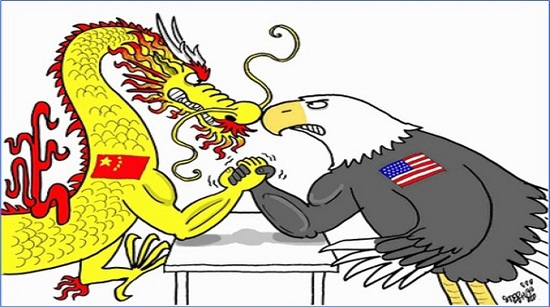Sometime in the second half of the 19th century the United States became the world’s largest economy, overtaking that of Great Britain. Yet it took half a century, until 1945, for the United States to assume global leadership in a systematic fashion. Considering this 50-year lag, many may find the frantic debates about when the Chinese economy will become the world’s largest unnecessary. Most US citizens think China has already overtaken the United States. The morning after China overtakes the United States, the world will most probably look quite the same. After all, China’s military power will continue to be far inferior to that of the United States, and there is no sign that this gap will close over the coming decades. As Robert Ross points out in a recent article in Foreign Affairs,
Over the last ten years, the PLA has not deployed any new ships or aircraft that significantly enhanced its ability to challenge U.S. maritime superiority. China’s main tool to counter the U.S. Navy and deter an American intervention in Asian conflicts remains a fleet of diesel submarines that has been in service since the mid-1990s.
Despite cuts in the US military budget, the gap between the United States’ and China’s military power is therefore not closing, but widening. This will become ever more visible as the United States is increasing its military presence in China’s neighborhood as part of its ‘Asian pivot’.
This raises the interesting question about whether the United States could in fact maintain its global military supremacy long after China turns into the world’s largest economy. In 2040, for example, China’s economy could be – assuming continued high growth – almost twice as large as that of the United States. India – by then the world’s most populous country – could begin to challenge the United States position as the world’s second largest economy. According to Hans Rosling, India’s economy will be much larger than the US economy by 2047 already.
Such a prediction can be challenged from two sides: First, some would argue that emerging powers would never accept continued US military supremacy in a world economy led by China and India. Secondly, one may doubt that the United States would be willing to foot the bill of providing global security in a world economy it no longer dominates.
Both these arguments are difficult to refute. From a rational point of view, emerging powers should welcome the United States’ continued willingness to provide global security. Instead of building expensive armies, they could focus on poverty reduction, education and on fixing their infrastructure. Yet nationalism could prevent them from following the German or Japanese model of eschewing security responsibilities. The second argument is equally potent – US voters could refuse to finance the world’s greatest armed forces long after China and India have established themselves as the world’s no.1 and no.2 economies. Despite these two challenges, there is little chance the US will cease to play the role it has played in global security for the past 60 years. Global order in 2040 will thus adopt an unprecedented structure: US military supremacy in a world economy led by China.
Read also:
Book review: “No One’s World” by Charles A. Kupchan
Book review: “The future of Power” by Joseph Nye Jr.
Book review: “Monsoon: The Indian Ocean and the Future of American Power” by Robert D. Kaplan
Photo credit: Finance twitter









